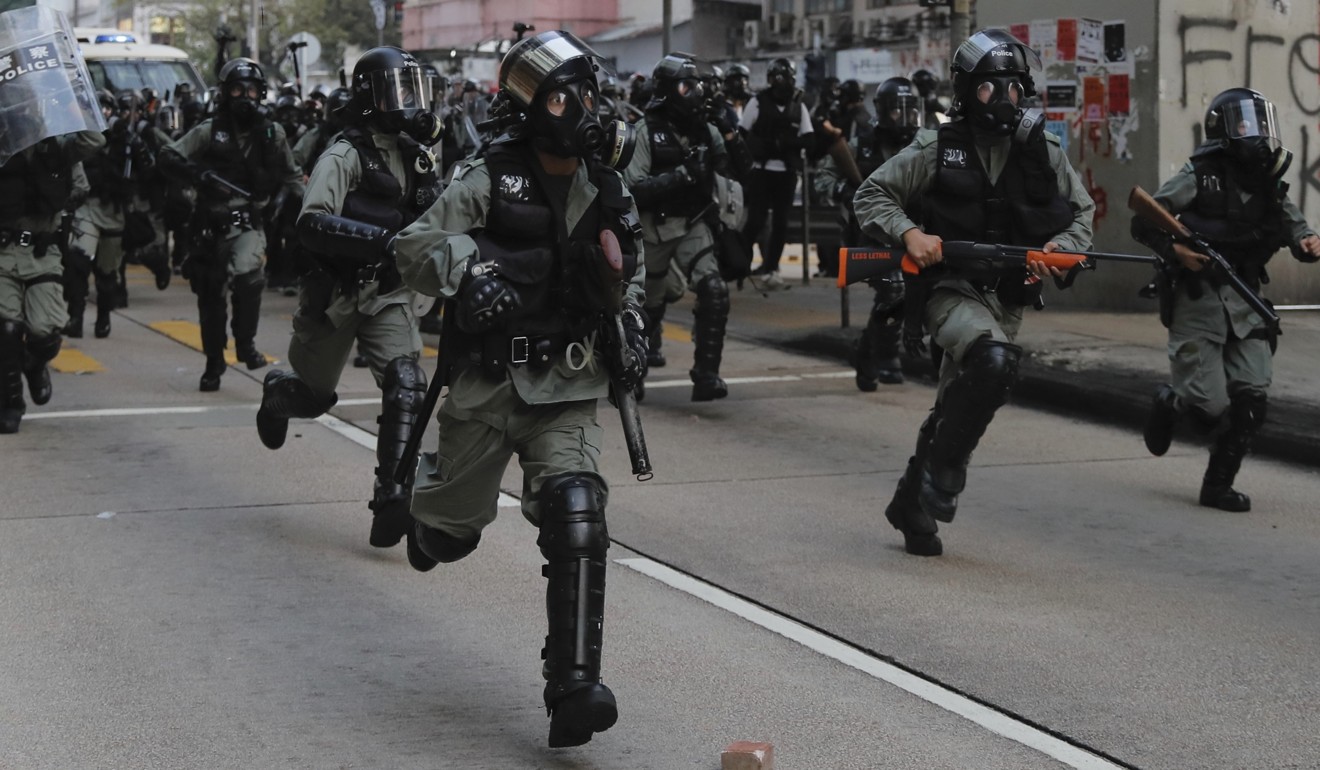
Judges question the need to allow Hongkongers to view the final voters’ register to spot or prevent vote rigging
- Judges hear an appeal by Junior Police Officers’ Association which wants a ban on release of electors’ details to prevent doxxing
- But Senior Counsel Raymond Leung for election authorities argues the register helps promote a fair and competitive election
Judges have questioned the necessity to allow the public to view the final voters’ register during an appeal hearing by Hong Kong’s largest police group, which wants a ban on the release of electors’ details to prevent the doxxing of officers and their children.
The appeal hearing was arranged after the Junior Police Officers’ Association filed an urgent application for an interim injunction on the release of the electors’ details. The police group asked city judges to shield the personal information of force members and their families in the final voters’ registry ahead of the district council elections on November 24, which was rejected by the Court of First Instance last Wednesday.
The lower court, however, issued a temporary ban on inspecting the register pending the determination of the appeal.
At the hearing in the Court of Appeal, Abraham Chan Lok-shung SC, on behalf of the police group, urged justices Jeremy Poon Shiu-chor and Johnson Lam Man-hon to prioritise the safety of the officers’ children, who may be subject to harassment by a section of the people attacking the force, over maintaining an open election process.

He said the risk arose from the prevalence of doxxing – the release of personal data online to subject a person to possible harassment and malicious attacks – which put police officers and their families in a highly vulnerable position amid the anti-government protests if their names and home addresses were made available for an open search.
The Electoral Affairs Commission Regulation stipulates that the Chief Electoral Officer must publish a voters’ register in every district council for public inspection, which must set out the voters’ names and residential addresses. Anyone can apply to inspect the full version or an extract of the register.
The final register was released on September 25, while the provisional one was published on August 25.
Hong Kong privacy watchdog refers 600 cases of doxxing to police
Raymond Leung Wai-man SC, for the election authorities, said the final register for the upcoming elections had been provided to six political parties in full and 26 individuals in extract form – 14 of whom had been nominated to take part in the election.
He said there was no evidence such information had been used for doxxing, adding the personal details of police officers leaked online appeared to have been made available elsewhere.
He argued publicising voters’ names with their addresses allowed people to scrutinise and raise an objection to incorrect data, be vigilant of corrupt election practices, promote a fair and competitive election by enabling all candidates to canvass, and ensure all electors were available for public inspection.

“The purpose of publication [of the electors’ details] is to advance the aim of maintaining an open, fair and honest election,” Leung said, adding the government had already received complaints of vote rigging.
But Justice Poon questioned the need to allow the public to view the final register to spot or prevent vote rigging.
Justice officials apply to hide identity of two police officers citing fears of doxxing
“When the provisional register is published to list out eligible electors, if there were any possible signs of vote rigging, that ought to be detected at that stage. You do not have to wait for the final register,” said Poon, who also questioned the degree of public participation in the inspection exercise.
Justice Lam also raised similar questions.
But Leung said public vigilance on vote rigging was a continuing exercise, and the court should not underestimate the involvement of the people.
The court is expected to hand down its ruling on Tuesday. A substantive hearing has been scheduled.
